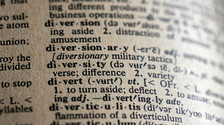Caxio
Another query about a complex sentence.
But for the poems that describe without any reserve that dynamic vital force which draws a man and a woman close together and that impact of hot feeling upon hot feeling, search where we will, we shall search in vain.(original)
Query:
Is the original grammatically correct?
For the sake of making the original concise, I name the complex noun phrase as A , ie.
A = the poems that describe without any reserve that dynamic vital force which draws a man and a woman close together and that impact of hot feeling upon hot feeling. (I understand A very well)
so the original is such as:
But for A, search where we will, we shall search in vain.
= (I guess:) Without A, even if we search for A where we will search for A , we shall search in vain.
but I extremely doubt the correctness of my guess.
2 sep. 2024 12:04
Antwoorden · 6
I made a long and detailed reply, I don't know why Italki deleted it. I won't write it all again, but hopefully they will retore it. In the mean time, I'll just summarise what my conclusion was.
The grammar is correct, but your guess is wrong. Your guess was a fair guess. But after searching the internet for the surrounding sentences to fully understand the context, I could then see the intended meaning of "But for" was not "Without", it was "However, in terms of". Adding a comma would have made this more clear (ie: "But, for") however this was not strictly necessary since the previous sentence made the context clear enough.
2 sep. 2024 13:00
No sentence of the form "But for X, we shall Y" can possibly make sense. "But for X,..." needs to be followed by something counterfactual or imagined. For example, you can say
"But for the rain, we could have had a picnic."
"But for our poverty, we could live in a castle."
But for Dan's suggestion to put a comma after "but", I would not have been able to imagine what the author intended to say. If you do that and also rearrange the word order, the sentence becomes understandable:
But, we shall search in vain for the poems ...
2 sep. 2024 19:59
Yes, it is grammatically correct. Here's simpler way to say the same thing (I'll leave out the word that got Dan's first reply deleted):
It's impossible to find poems about ___________ attraction.
Let's just say that the missing word looks a little like "textual." :)
2 sep. 2024 17:28
It’s ok grammatically if a bit complicated.
The only place you will find “the vital force etc” is in poems.
2 sep. 2024 12:51
Yes, that original poem "can be" grammatically correct depending on its meaning. And because it's generally so well written, I would assume its meaning is intended exactly the way it's written, thus is free from errors. But I would like to see the previous sentences to be sure.
Your guess could be correct! "But for..." can mean "Without..." but it can also mean "But, for..." / "However, for..." / "But, in terms of..." / "As for...". To be confident of its intended meaning, I would need to see the previous sentences to fully understand the context.
I have just searched the internet for the previous sentences. Now I can confirm, I think the intended meaning is "But, for", not "Without", so your guess was wrong, but this can not be known without seeing the surrounding sentences for a clear view of context.
Now, this bakes the question, should there have been a comma "But, for" to make the meaning clear? Was it actually wrong grammar due to lack of a comma for clarity? Technically, no, it's not wrong grammar - that comma was not strictly needed because the context was already set by the previous sentence.
2 sep. 2024 12:20
Heb je je antwoorden nog steeds niet gevonden?
Schrijf je vragen op en laat de moedertaalsprekers je helpen!
Caxio
Taalvaardigheden
Chinees (Mandarijn), Engels
Taal die wordt geleerd
Engels
Artikelen die je misschien ook leuk vindt

Traveling for Business: Tips, Tricks, and Essential Advice
23 likes · 10 Opmerkingen

How Listening Twice Can Boost Your English Skills
49 likes · 15 Opmerkingen

Top 6 Mistakes to Avoid with Vocabulary Acquisition
61 likes · 20 Opmerkingen
Meer artikelen
